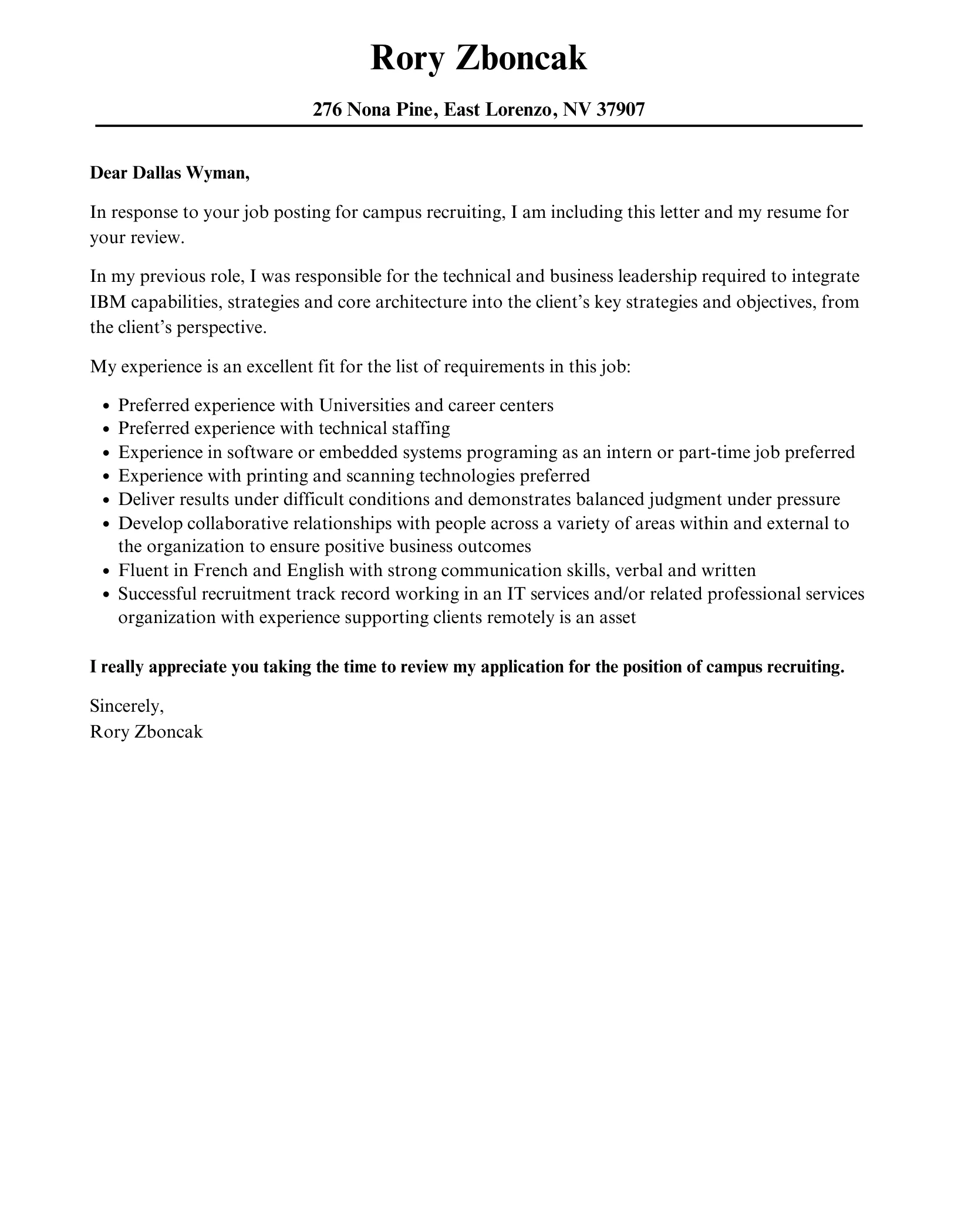Understanding the Importance of a Cover Letter
In the competitive landscape of on-campus job applications, a well-crafted cover letter is your secret weapon. It’s your first opportunity to make a positive impression and convince the hiring manager that you’re the perfect fit. While a resume provides a snapshot of your qualifications, a cover letter allows you to tell a story, connecting your skills and experiences to the specific requirements of the job. Ignoring this crucial step means missing a golden opportunity to highlight your personality, enthusiasm, and genuine interest in the position. A compelling cover letter can significantly increase your chances of landing an interview, paving the way for your on-campus employment journey. Your resume may be fantastic, but the cover letter is your personal brand and the first thing that can make you or break you.
Why a Cover Letter Matters for On-Campus Jobs
On-campus jobs often attract a large pool of applicants, making it essential to stand out from the crowd. A cover letter offers you the space to showcase your unique qualities and explain why you’re the ideal candidate. It’s an opportunity to express your passion for the university, the department, or the specific role you’re applying for. A well-written cover letter demonstrates your communication skills, attention to detail, and genuine interest in the opportunity. By personalizing your letter and tailoring it to the specific job description, you prove that you’ve done your research and are genuinely excited about the prospect of contributing to the campus community. Showing this level of engagement can make all the difference in a hiring manager’s decision-making process. Furthermore, it can be the key to show your interest to the on-campus job.
Key Components of a Cover Letter for On-Campus Jobs

A successful cover letter for an on-campus job is more than just a formality, it is an excellent demonstration of your writing skill, personality, and commitment to the role. Your letter needs a strong opening, specific examples that speak directly to the requirements of the job, and a powerful call to action. Your cover letter is a marketing tool that will sell your value to the hiring manager. It also must follow the common cover letter formats to ensure that the information is easy to understand and that you have properly addressed all of the most pertinent requirements. It should be well-organized and easy to read, making it simple for the hiring manager to quickly grasp your relevant qualifications.
Header and Contact Information
Begin your cover letter with a professional header that includes your full name, contact information (phone number and email address), and the date. Also, include the hiring manager’s name, title, and the department. Ensure that your contact information is accurate and up-to-date. Using a clear and professional layout sets a positive tone and makes it easy for the hiring manager to contact you. The header is the first thing the hiring manager will see; a professional header is a vital step in the cover letter process. This helps ensure your letter looks professional and that the reader can easily contact you.
Addressing the Hiring Manager
Always address the hiring manager by name. If the name is not listed in the job posting, take the time to research it. Addressing the hiring manager by name shows that you’ve taken the initiative to learn more about the position and that you care about the job. It shows your attention to detail and your respect for the hiring manager. Using a generic greeting, such as “To Whom It May Concern,” can make your letter feel impersonal and less impactful. Knowing the hiring manager’s name allows you to personalize your letter and make a stronger connection. Taking the time to do this research and find out who to address your letter to could give you the edge.
Crafting a Compelling Opening Paragraph
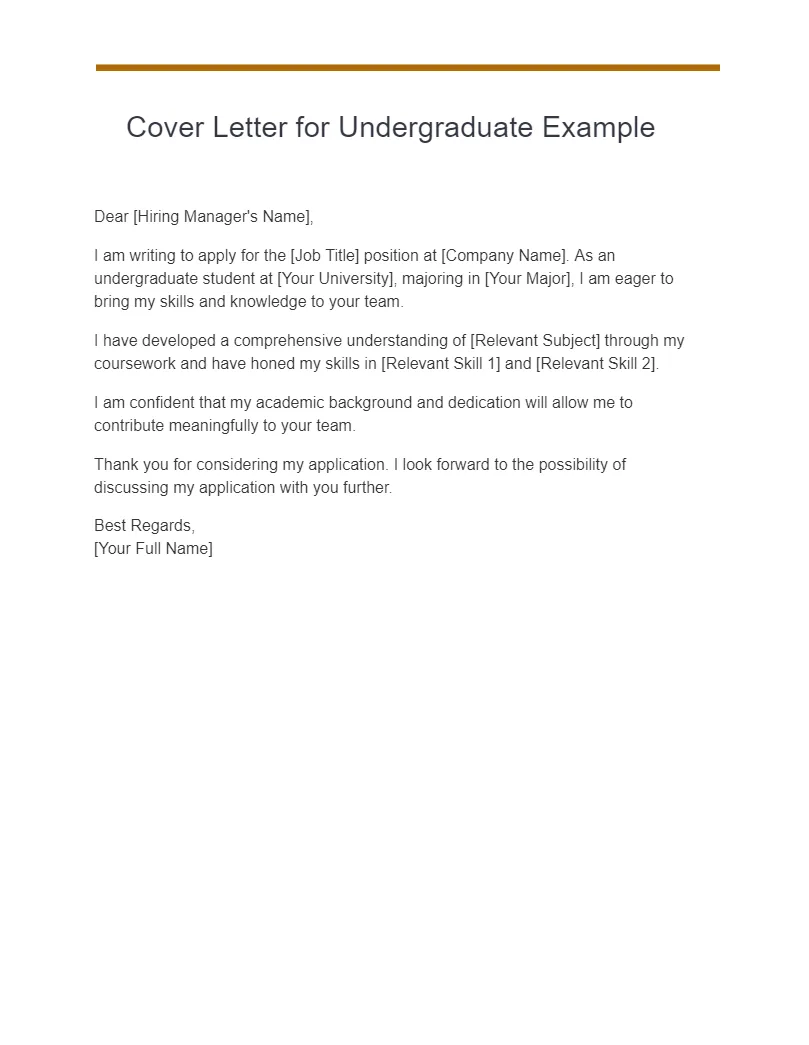
The opening paragraph is your chance to grab the reader’s attention. State the position you’re applying for and how you learned about it. Briefly mention your most relevant skills or experiences, and express your enthusiasm for the opportunity. Make a strong first impression by highlighting what makes you the ideal candidate. Think of it as your elevator pitch. Get to the point quickly, and let the hiring manager know why they should read further. Show your excitement and passion for the role and the university or department. A memorable opening will encourage the reader to continue reading and learn more about your qualifications.
Highlighting Relevant Skills and Experiences
The body of your cover letter is where you demonstrate your qualifications. Review the job description carefully and identify the key skills and experiences the employer is seeking. Provide specific examples from your academic, extracurricular, or previous work experiences that showcase these skills. Quantify your achievements whenever possible. Did you increase efficiency, improve sales, or manage a team? Use action verbs to describe your accomplishments and provide a clear and concise narrative of your capabilities. This will help the hiring manager see how your skills and experience align with the job’s requirements. Use the language of the job description to show that you understand the employer’s needs.
Showcasing Academic Achievements
Don’t be afraid to showcase your academic achievements. Highlight any relevant coursework, projects, or academic awards that demonstrate your skills and knowledge. If you’ve maintained a high GPA or earned a place on the Dean’s List, mention it. Be sure to frame your academic achievements in a way that aligns with the requirements of the job. For example, if you’re applying for a research assistant position, highlight your experience with research methodologies or your academic writing skills. Show how your academic background prepares you for the role. This gives the hiring manager a well-rounded perspective of who you are as a candidate. It can differentiate you from other applicants.
Emphasizing Campus Involvement

On-campus jobs often value candidates who are actively involved in the university community. Mention any clubs, organizations, or volunteer activities you participate in. Highlight any leadership roles you’ve held or any contributions you’ve made. This demonstrates your commitment to the university and your ability to work collaboratively. If you’ve volunteered at university events or participated in campus initiatives, be sure to mention it. Emphasizing your campus involvement can show the hiring manager that you’re enthusiastic about university life. These experiences can also provide relevant skills to the job.
Tailoring Your Cover Letter to the Job Description
Avoid using a generic cover letter. Instead, tailor each letter to the specific job description. Carefully read the job posting and identify the key requirements. Use the language of the job description to describe your skills and experiences. Highlight the specific skills and experiences the employer is seeking. By personalizing your cover letter, you show the hiring manager that you’ve taken the time to understand the job and that you’re genuinely interested in the opportunity. It shows you have a clear understanding of the role and you’re not just sending a generic application. Customize your cover letter to the specific requirements of the job for the greatest impact.
Researching the Job and the University
Before you start writing your cover letter, research the job and the university or department. Learn about the specific responsibilities of the role, the department’s goals, and the university’s values. Demonstrate your knowledge of the university and department in your cover letter. This will show the hiring manager that you are serious about the position. Visit the university’s website and social media accounts to learn more about the university’s mission and culture. Knowing as much as possible about the role and the organization helps you write a targeted cover letter. This will also help you to show a genuine interest in the position.
Using Keywords Effectively
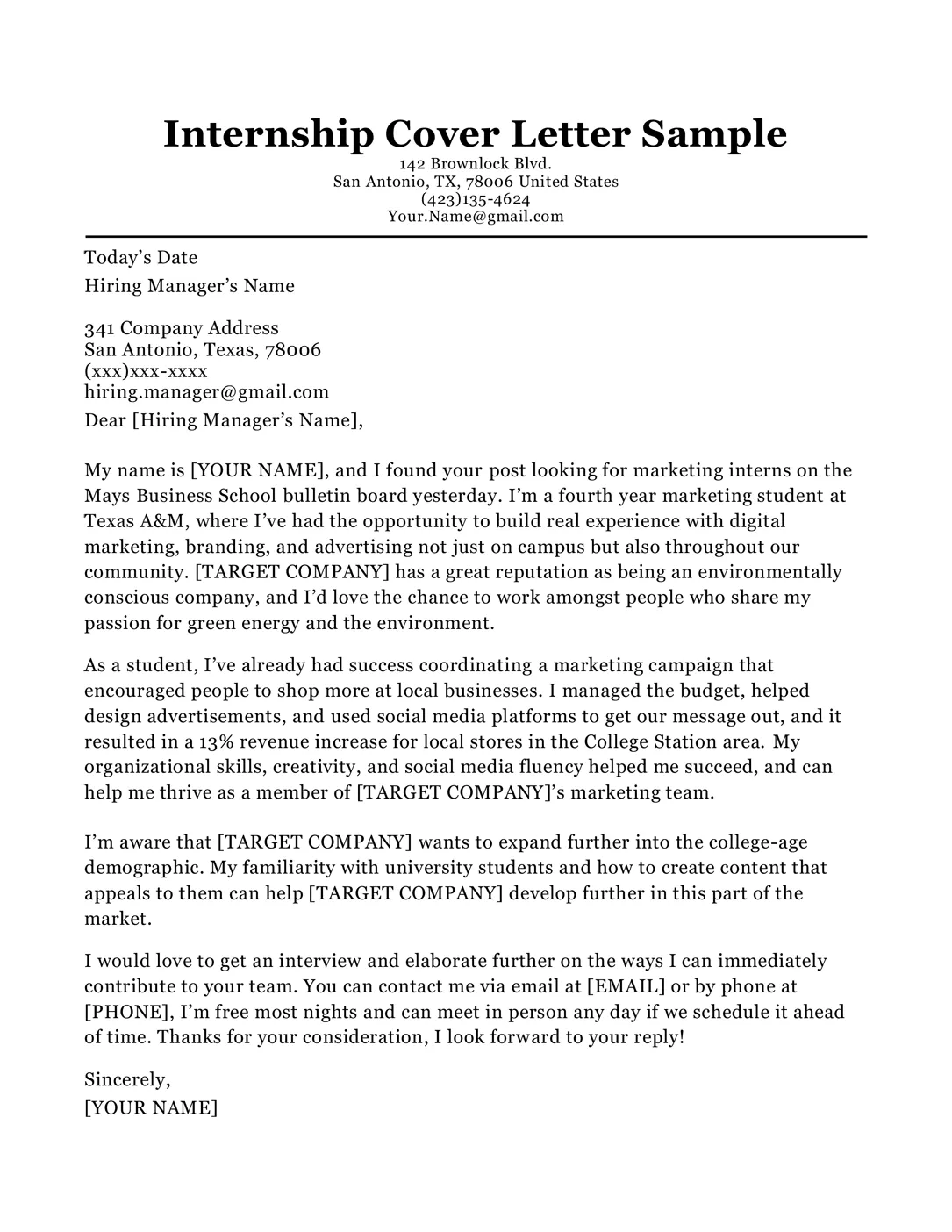
The job description is your guide to keywords. Carefully review the job posting and identify the key skills, qualifications, and keywords the employer is looking for. Incorporate these keywords naturally throughout your cover letter. Avoid keyword stuffing, which can make your letter sound unnatural and forced. Use keywords to demonstrate your understanding of the job requirements and your ability to meet them. Keywords can help your cover letter get past applicant tracking systems (ATS) and get noticed by the hiring manager. By using the correct keywords, you are showing the hiring manager that you are qualified and a good fit.
Writing a Strong Closing Paragraph
Your closing paragraph should summarize your interest in the position and reiterate your qualifications. Express your enthusiasm for the opportunity and thank the hiring manager for their time and consideration. Include a call to action, such as, “I look forward to hearing from you soon.” or “I am available for an interview at your earliest convenience.” Leave the hiring manager with a positive final impression. Reiterate your interest in the position and demonstrate how your skills and experience align with the role. Make it easy for the hiring manager to contact you and learn more about your qualifications.
Expressing Enthusiasm and Interest
Throughout your cover letter, express your genuine enthusiasm for the position and the university. Demonstrate your passion for the role and your excitement about contributing to the campus community. Show your interest in the university’s mission and values. This can make a positive impression on the hiring manager. Your enthusiasm will set you apart from other applicants. Your excitement can be a deciding factor in whether you are offered an interview. Let your enthusiasm shine through your writing and show the hiring manager that you’re genuinely interested in the opportunity.
Providing Contact Information and Call to Action
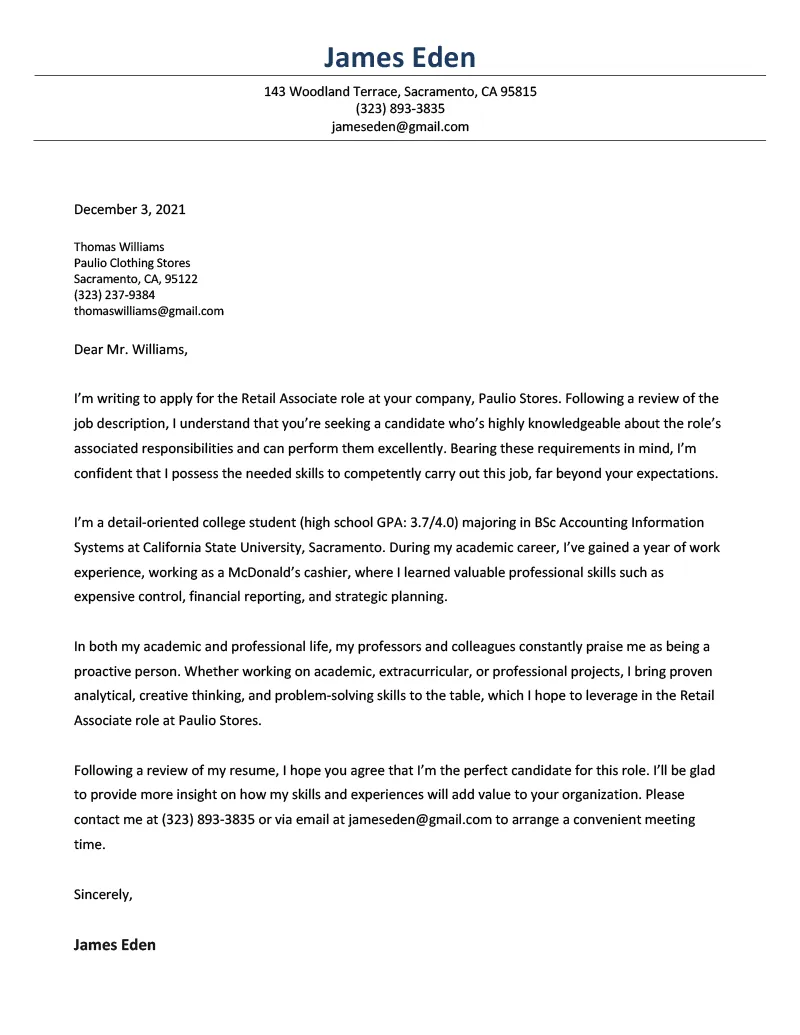
Make it easy for the hiring manager to contact you. Provide your phone number and email address in your header and at the end of your cover letter. Include a call to action, such as, “I am available for an interview at your earliest convenience.” or “I look forward to hearing from you soon.” This shows that you are serious about the position and want to learn more about the opportunity. Proofread all contact information for accuracy. Be sure to respond promptly to any communication from the hiring manager. This ensures the hiring manager can easily reach you and shows your enthusiasm for the opportunity.
Formatting and Proofreading Your Cover Letter
A well-formatted and error-free cover letter is essential for making a positive first impression. Use a clean and professional font, such as Times New Roman, Arial, or Calibri, with a font size of 11 or 12 points. Use clear and concise language, and avoid overly complex sentences. Keep your paragraphs short and to the point. Make sure your formatting is consistent throughout the letter. Proofread your cover letter carefully for any grammatical errors, spelling mistakes, or typos. Proofreading is very important because it can make the difference between getting an interview and getting your application thrown away. A well-formatted and error-free cover letter demonstrates professionalism and attention to detail.
Choosing the Right Font and Formatting
Choose a font that is easy to read and professional in appearance. Use a font size of 11 or 12 points. Use consistent formatting throughout your cover letter. Use headings and bullet points to break up large blocks of text and make your letter easier to read. Make sure your margins are consistent and that your text is aligned properly. The goal is to create a visually appealing document that is easy for the hiring manager to read. Using a clear and professional font and formatting will show the hiring manager that you’re organized and detail-oriented.
Proofreading for Grammar and Spelling Errors
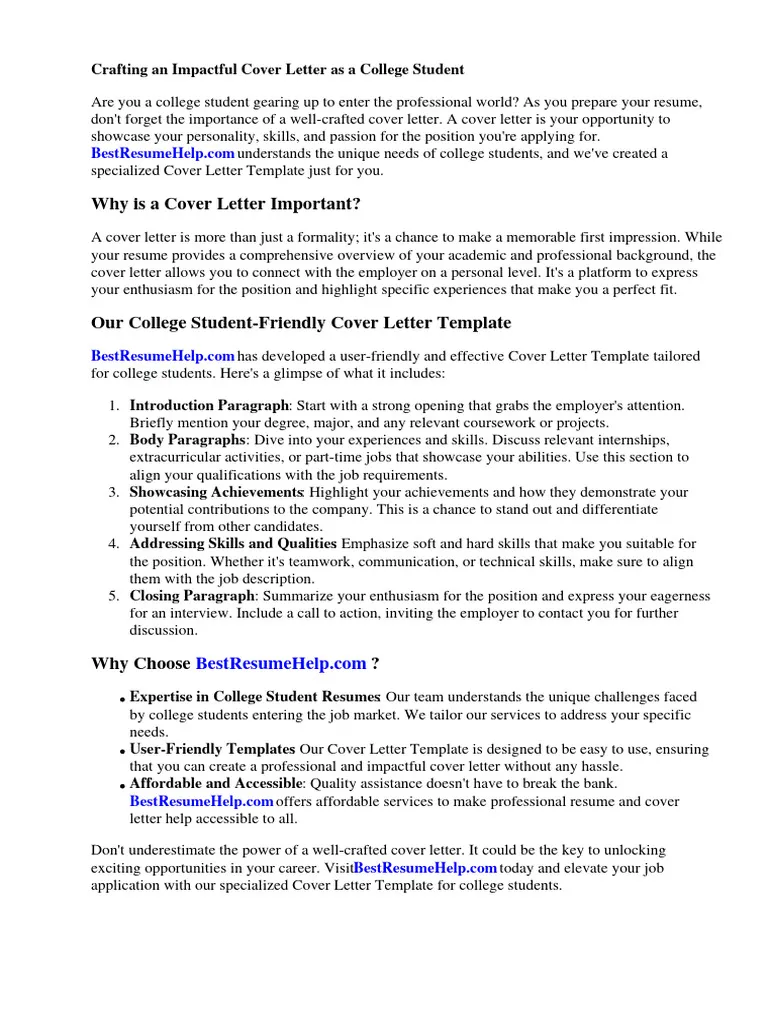
Proofread your cover letter carefully for any grammatical errors, spelling mistakes, or typos. Use a grammar checker or ask a friend or family member to proofread your letter. Ensure that your writing is clear and concise and that your message is easy to understand. Proofreading is critical because errors can undermine your credibility and make you appear careless. Proofreading your cover letter can demonstrate your attention to detail and professionalism. Taking the time to proofread your cover letter will increase your chances of making a positive impression and landing an interview.
Reviewing and Editing Your Cover Letter
Before submitting your cover letter, review and edit it carefully. Ensure that your cover letter is tailored to the specific job description and that it highlights your key qualifications. Make sure your cover letter is well-organized, easy to read, and free of errors. Consider asking a career counselor, professor, or trusted friend to review your cover letter and provide feedback. Take the time to get feedback from others. Reviewing and editing your cover letter will increase your chances of making a positive impression and landing an interview. Edit your cover letter for grammar, spelling, and clarity. Your hard work in the cover letter writing process can pay off.
